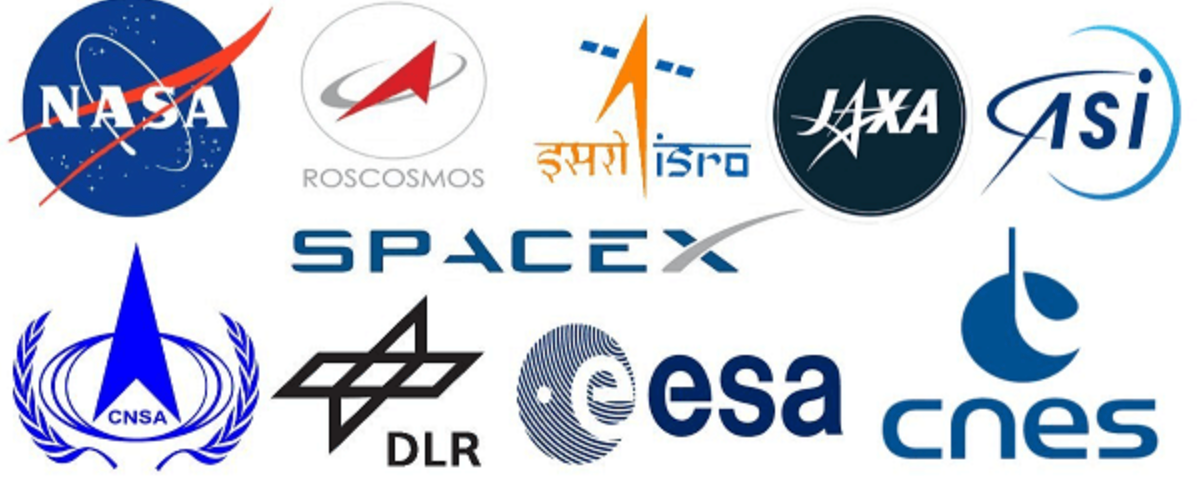Top Tips From Hiring Experts - How To Land Your Next Space Career Job in 2025
The space industry is rapidly evolving with new technologies, defence advancements, and commercial space exploration coming into play. Whether you're an experienced aerospace engineer or a tech expert looking to transition into the space sector, finding the right opportunity can feel like searching for a signal in deep space. That’s why we’re here to help you land your next mission-ready role.
This blog will cover specialist market insights into the opportunities in the Space Industry, what skills are required, how to obtain a security clearance and how to get noticed and land your next job in Space.
1. The Space Industry Hiring Landscape: Where Are the Opportunities?
If you were ever going to enter into the Space industry- now is the time! With a surge in space defence contracts, private sector investments, and cutting-edge technologies like AI-driven satellite systems, there are increasingly exciting opportunities for a wide range of talent.
The European Space Agency, NASA, SpaceX, and a growing number of New Space Start-ups who are actively seeking mission-ready talent to drive innovation in:
- Satellite technology and cybersecurity – With global tensions rising, secure and resilient space communications are a top priority.
- AI and automation in space operations – AI-powered data analytics and autonomous spacecraft systems are shaping the future.
- Hypersonic and propulsion engineering – The race for faster, more efficient space travel is on.
- Software development for space missions – Coding the future of space exploration, from launch systems to on-orbit servicing.
SEAL Systems' 2024 Aerospace Challenges Report states that the industry experienced a 9% increase in job vacancies in 2024, showing an ongoing struggle to fill critical roles. Additionally, 85% of aerospace executives identified the skills gap as a top priority. This means employers are actively competing for top talent.
2. What Are The Most Important Skills Employers Look For?
If you're transitioning into the space industry, focusing on high-demand technical skills will give you a competitive edge.
Top Skills Needed To Land A Job In Space:
- C++, Python, and embedded systems – Crucial for software development in aerospace and satellite systems.
- RF engineering and signal processing – Critical for communications and defence applications.
- Cloud computing and cybersecurity – With increasing threats in space, security is non-negotiable.
- Machine learning and AI for aerospace applications – Automating mission-critical tasks is the future.
- Additive manufacturing (3D printing) and advanced materials – Driving cost-effective space hardware innovation.
According to the Future Jobs Report of 2025 the top future skills requirement that are not only critical now but are projected to become increasingly important in Aerospace will be AI and big Data, Technological literacy, Leadership and Social Influence.
Education background is also highly taken into account in the Space Industry. A lot of roles are specialist and do require a background in STEM, Aerospace engineering, Space Engineering or a related field. So this is to take into consideration if you are looking at what degrees to take, or if you need to up-skill.
How To Get Security Cleared and Mission-Ready
The main question asked when transferring to the Aerospace industry is how to obtain a Security Clearance. While not all roles in the Space industry require one, having a security clearance in the space industry can significantly boost your salary. On average, professionals with a security clearance earn 10-30% more than those without one, depending on the level of clearance and the role.
A security clearance is typically required for roles involving sensitive or classified information. However, you cannot apply for a clearance yourself—it must be sponsored by an employer or government agency.
General Process for Obtaining a Security Clearance
1. Secure a Job That Requires a Clearance
Employers (such as defence contractors, space agencies, or government organisations) must sponsor you for a clearance.
You cannot apply for a clearance independently—you need a job offer or an existing role that requires it.
2. Undergo Background Checks & Vetting
The process includes criminal record checks, financial history reviews, employment verification, and interviews.
The depth of the investigation depends on the clearance level.
Some clearances (e.g., Top Secret or DV in the UK) may include interviews with family, colleagues, and associates.
3. Clearance Granted (or Denied)
If successful, you will receive authorisation to access classified information for a set period (e.g., 5–10 years before renewal is required).
If denied, there may be an appeals process, but decisions are usually final unless circumstances change.
This is a generalised summary on how to obtain a clearance, if you have any questions please reach out to us at Axis Talent for more information: hello@axistalent.io
3. How to Stand Out: Resume and LinkedIn Optimisation for Space Industry Jobs
Your resume and LinkedIn profile need to be
tailored for the space sector. Recruiters and hiring managers scan for specific keywords and experience that align with mission-critical projects. Here’s how to optimise your profile:
Resume Optimisation Checklist
- Use industry-specific keywords like "aerospace engineering," "satellite communications," "hypersonic technology," and "space mission software."
- Highlight security clearance (if applicable) – If you have it, make sure it is listed.
- Showcase mission-impact projects – Employers want to see how your work contributes to critical operations.
- Quantify achievements – Instead of saying "developed satellite software," say "Developed software for geospatial data processing, improving mission efficiency by 30%."
- Include relevant certifications like CompTIA Security+ (for cybersecurity roles) or MATLAB and Simulink (for aerospace modelling).
LinkedIn Profile Must-Haves
- A compelling headline – Instead of "Software Engineer," try "Mission-Ready Software Engineer | Satellite Communications | Aerospace Systems."
- Engage with industry content – Follow companies like Lockheed Martin, SpaceX, and NASA; comment on posts and share insights.
- Network strategically – Connect with hiring managers, recruiters, and engineers working in the companies you aspire to join.
- Showcase projects and technical expertise – Publish articles or posts discussing innovations in space technology, coding breakthroughs, or mission-critical engineering solutions.
The Role of Specialist Recruiters
Landing a role in the space industry isn’t just about applying to job postings, it’s about navigating the hiring process strategically. Many top aerospace and defence companies rely on specialist recruiters who understand the unique skill sets and security requirements needed for these roles.
Companies like Axis Talent specialise in placing mission-ready talent in defence and space roles. Unlike generalist recruiters, we understand all things surrounding security clearance, technical expertise, and mission alignment.
For more information CLICK HERE for what you can expect working with Axis Talent.
Ready to Take Off? Let’s Get You Hired in the Space Industry
Breaking into or advancing within the space sector doesn’t have to feel like rocket science. Whether you’re a software engineer, RF specialist, or defence contractor looking for your next mission, Axis Talent is here to help you navigate the hiring process with excellent precision.
🚀 Want to explore mission-ready opportunities? Connect with us today and let’s launch your next career move.
👉 Visit Axis Talent to browse exclusive space and defence roles or speak with a specialist recruiter.
👉 Check out our live job roles HERE













